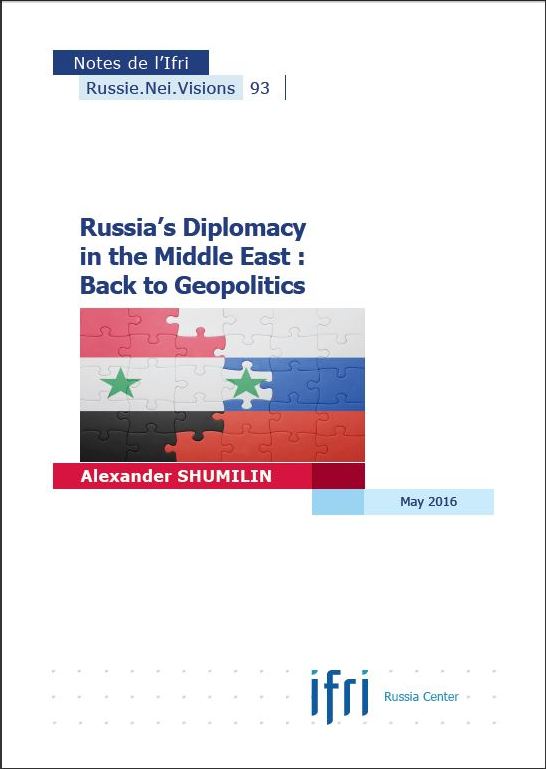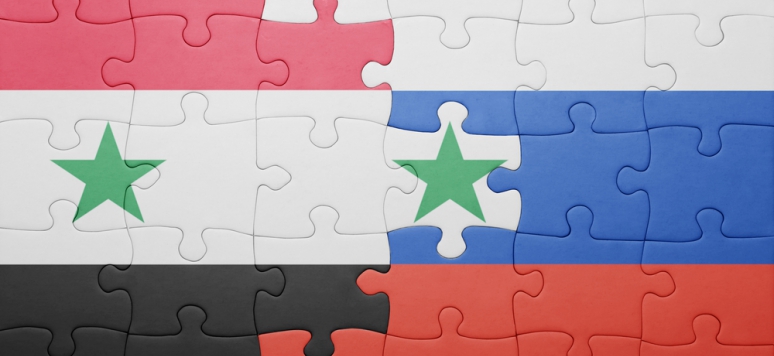Russia's Diplomacy in the Middle East: Back to Geopolitics

Moscow's approach to the Middle East has undergone real changes from Soviet times to the present day: it evolved from creating zones of influence against the background of confrontation with the West to seeing the region through the prism of mainly economic interests, and, finally, to Moscow’s current pragmatic view.

The latter, in essence, is a fusion of the previous two stages, with the Middle East serving Russia as a springboard for military and political manoeuvres in its confrontation with the West, while at the same time being seen as a potentially promising market for Russia’s modern weaponry, engineering and heavy trucks. Moscow also approaches this region today as a potential source of finance, in the form of loans and investment.
Moscow’s pragmatic approach to the Middle East is now being tested by the Syrian crisis. Russia’s military and political moves in Syria have raised a host of important questions. To what extent do they accord with Russia’s wider regional interests, and bolster its authority in the Arab (Sunni) world? What should Russia’s long-term interest in this region be, with long-term interests, by definition, not being bound to individual politicians—in Russia as well as in Middle Eastern countries? This article is an attempt to trace the evolution of Russian policy in the Middle East and to judge what effects Russia’s approach to the Syrian crisis might have on the position it occupies in the region.
Alexander Shumilin, political science PhD, is Director of the Centre for the Analysis of Middle Eastern conflicts at the Institute for US and Canadian Studies of the Russian Academy of Sciences.
Download the full analysis
This page contains only a summary of our work. If you would like to have access to all the information from our research on the subject, you can download the full version in PDF format.
Russia's Diplomacy in the Middle East: Back to Geopolitics
Related centers and programs
Discover our other research centers and programsFind out more
Discover all our analysesThe Caspian Sea as an Emerging Energy Hub : Potentials and Limitations
This report analyzes the prospects of the Caspian Sea region — and its key actors except for Russia and Iran — becoming an important energy hub serving the needs of the European Union (EU).
The European Union's Strategic Test in Georgia
The political crisis brewing in Georgia is of an existential nature for the country. What is at stake is Georgia's future as a democratic and sovereign European nation (EU).
Commanders of Putin's Long War: Purged, Reshuffled and Disgruntled
The trend of reshuffling the Russian top military command in the course of a fast-evolving and far from successful war has progressed unevenly both across the Armed Forces’ structures and in time. The rationale for and timing of the abrupt cadre decisions made by Commander-in-Chief Putin often defy logical explanation, and the rare official clarifications are no more informative than the usual information blackout.
Russian Military Manpower After Two and a Half Years of War in Ukraine
In addition to a military victory in Ukraine, the Russian leadership is planning to build up sizable troop formations for a possible conflict with NATO in the Baltic region and the Kola Peninsula. In particular, current plans aim for the military manpower to grow by about 350,000, reaching a total of 1.5 million soldiers and commanders. In the context of the current conflict in Ukraine, this cannot be accomplished without a new wave of mass mobilization.









